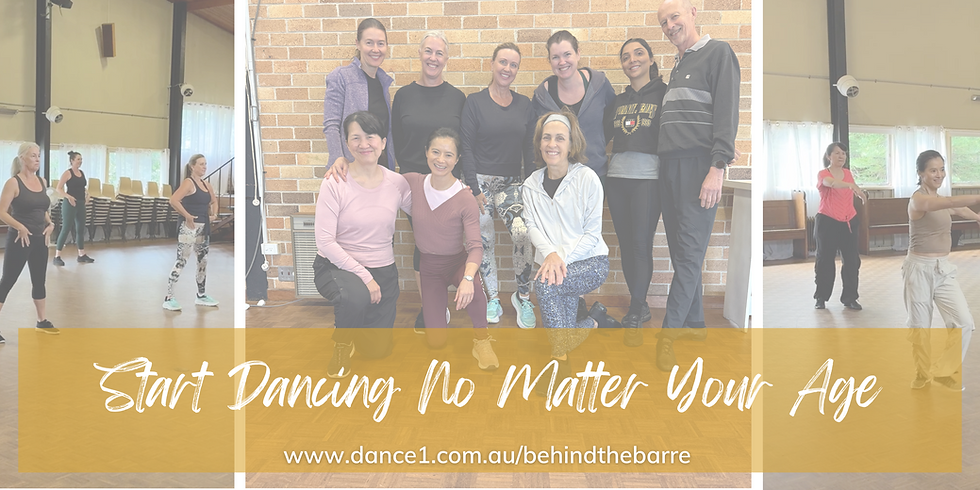"Tiny Dancers": Why Preschool Dance Classes are the Perfect Introduction to Movement and Creativity!
- luisa363
- Apr 24, 2023
- 3 min read
What’s the rush? Children have years ahead of them to pursue dance classes and extracurricular activities. While that may be true, starting dance at a younger age has several benefits for children.
Physical Development:
Dance contributes to the development of gross motor skills, coordination, strength, balance, and flexibility. These are essential for the overall physical development of a child.
Gross motor skills are the ability to control and coordinate large muscles of the body, such as those in the arms, legs, and torso. Children typically develop gross motor skills in a predictable sequence, starting with rolling over, crawling, walking and running.
FACT: Children will develop the foundations for important gross motor skills when they are between the ages of 1 and 3.
This means our youngest dancers need the most support at this age to ensure these skills are acquired in a proper way, to avoid injury and align with the progression of physical development.
What better way for Preschoolers to safely explore these gross motor skills, with trained dance teachers! Our DANCE1 TinyBlast Teachers have over 20 years of combined teaching experience with Preschoolers. They couldn't be in better hands!
Emotional development:
Dancing can help kids to express their emotions and feelings through movement. It can also help them to develop their self-esteem, confidence, and body awareness.
Children in the age group of 3 to 8 years old generally have the biggest imagination. During this stage of development, children's brains are developing rapidly, and they are learning about the world around them through their senses and experiences.
Dance classes provide an outlet for Preschoolers' energy and emotions, while encouraging pretend play. We spread our wings and fly, we stomp our feet through the jungle and balance like a tight-rope walker on our tiptoes!
Social Development:
Dance classes with peers help children to learn social skills, such as cooperation, sharing, and teamwork.
We know our little ones LOVE to put on lounge-room performances, however we have even more fun in the Studio space! Dancing in a group setting can help children learn to work together, take turns, and follow directions.
It also provides them with opportunities to make friends and build social connections... something that is VERY much needed in our world right now (post-COVID).
Cognitive Development:
Dancing involves counting, memorising steps, and following directions. All of this contributes to the development of cognitive skills.
Learning and performing dance routines requires kids to remember steps and sequences, which can improve their memory skills. Participating in a dance class requires focus and concentration, as kids need to pay attention to their movements and the music. This can help improve their ability to sustain attention and ignore distractions.
Dance routines often involve problem-solving, as kids need to figure out how to execute difficult moves or transitions. This can improve their ability to think critically and find solutions to challenges.
While we dance and have fun, our young dancers are moving through space and in relation to other people. This can improve kids' spatial awareness and ability to navigate their environment.
Creative Development:
Dancing from a young age exposes children fosters a love for the arts and music.
Music stimulates the brain in a unique way, activating multiple areas involved in language, memory, and problem-solving. Listening to music can also help children develop their sense of rhythm, timing, and coordination (hence why there is LOTS of fun music in our TinyBlast classes!)
Music can also have a positive impact on emotional development. Studies have found that music can help children regulate their emotions, reduce stress and anxiety, and improve their overall mood.
Enrolling children in dance classes can also provide them with a structured environment to learn and develop their musical skills.
Overall, dancing is a fun and engaging way for Preschool age kids to learn and grow in a variety of areas. It can help them to develop physically, emotionally, socially, cognitively, and creatively, all while having a great time.
DANCE1 has designed our brand new ‘TinyBlast’ Preschool Program with these in mind. We want to help you get started so your 'Tiny Dancer' can experience all the benefits!
You can find out more about our ‘TinyBlast’ classes here:





Comments